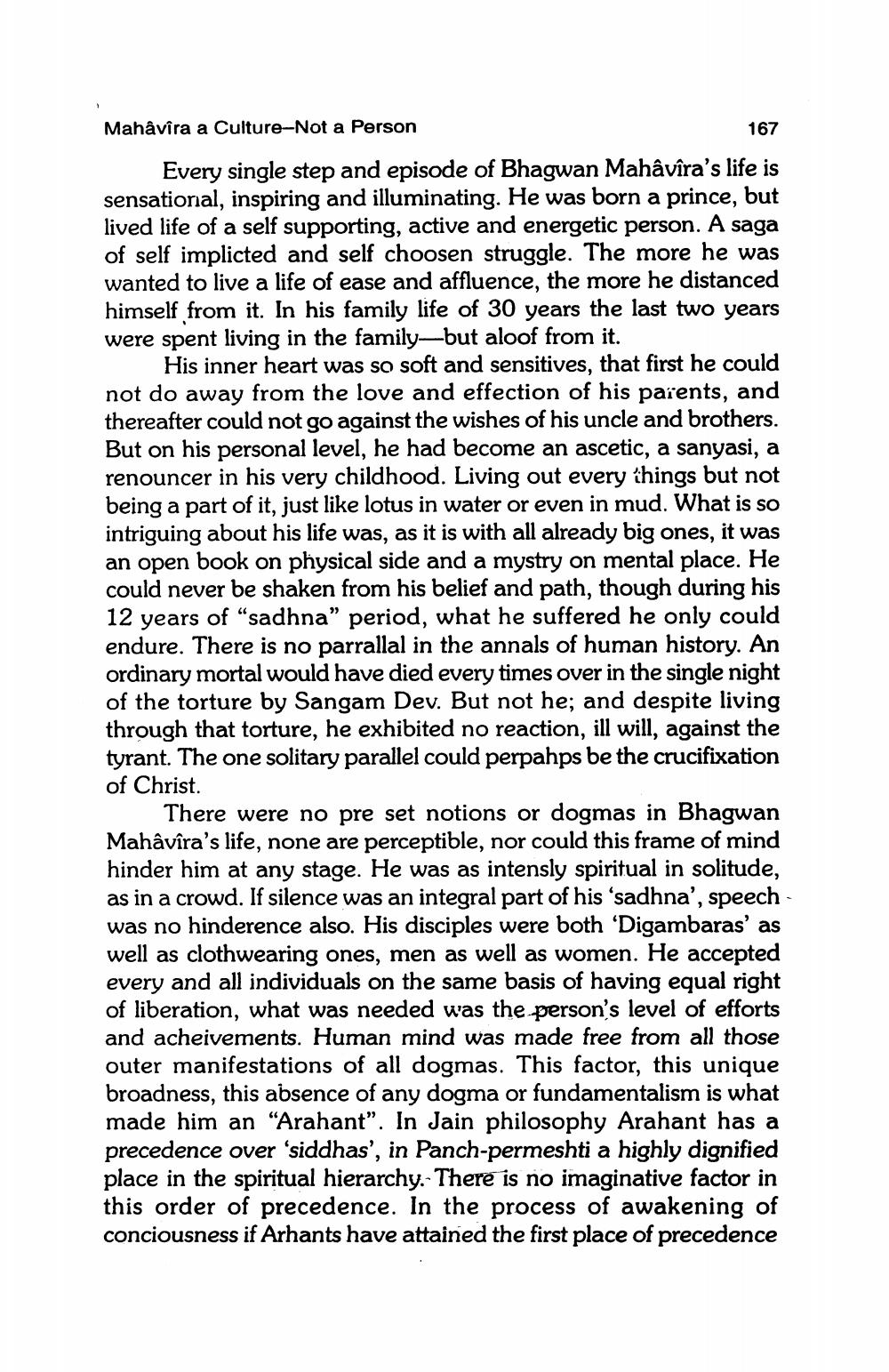________________
Mahâvîra a Culture-Not a Person
167
Every single step and episode of Bhagwan Mahâvîra's life is sensational, inspiring and illuminating. He was born a prince, but lived life of a self supporting, active and energetic person. A saga of self implicted and self choosen struggle. The more he was wanted to live a life of ease and affluence, the more he distanced himself from it. In his family life of 30 years the last two years were spent living in the family-but aloof from it.
His inner heart was so soft and sensitives, that first he could not do away from the love and effection of his parents, and thereafter could not go against the wishes of his uncle and brothers. But on his personal level, he had become an ascetic, a sanyasi, a renouncer in his very childhood. Living out every things but not being a part of it, just like lotus in water or even in mud. What is so intriguing about his life was, as it is with all already big ones, it was an open book on physical side and a mystry on mental place. He could never be shaken from his belief and path, though during his 12 years of "sadhna" period, what he suffered he only could endure. There is no parrallal in the annals of human history. An ordinary mortal would have died every times over in the single night of the torture by Sangam Dev. But not he; and despite living through that torture, he exhibited no reaction, ill will, against the tyrant. The one solitary parallel could perpahps be the crucifixation of Christ.
There were no pre set notions or dogmas in Bhagwan Mahâvîra's life, none are perceptible, nor could this frame of mind hinder him at any stage. He was as intensly spiritual in solitude, as in a crowd. If silence was an integral part of his 'sadhna', speechwas no hinderence also. His disciples were both 'Digambaras' as well as clothwearing ones, men as well as women. He accepted every and all individuals on the same basis of having equal right of liberation, what was needed was the person's level of efforts and acheivements. Human mind was made free from all those outer manifestations of all dogmas. This factor, this unique broadness, this absence of any dogma or fundamentalism is what made him an "Arahant". In Jain philosophy Arahant has a precedence over 'siddhas', in Panch-permeshti a highly dignified place in the spiritual hierarchy. There is no imaginative factor in this order of precedence. In the process of awakening of conciousness if Arhants have attained the first place of precedence




